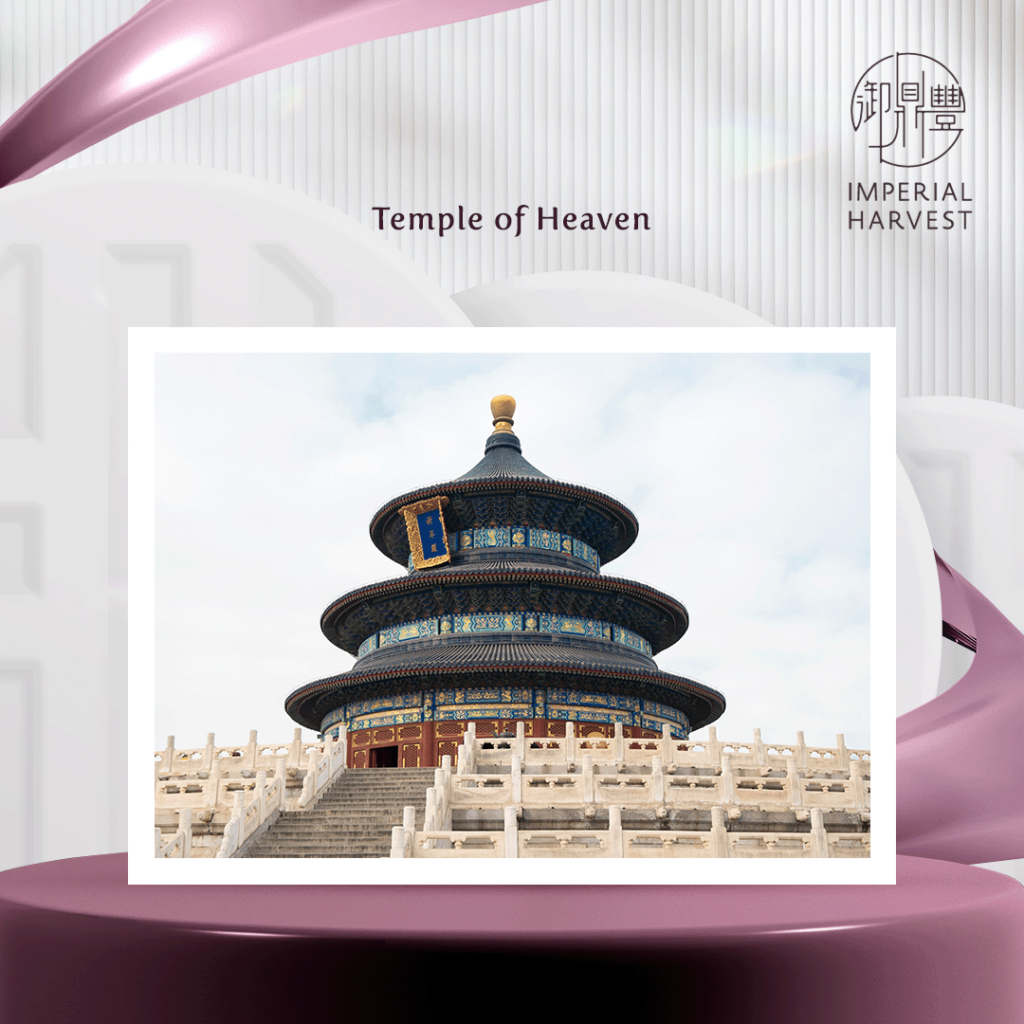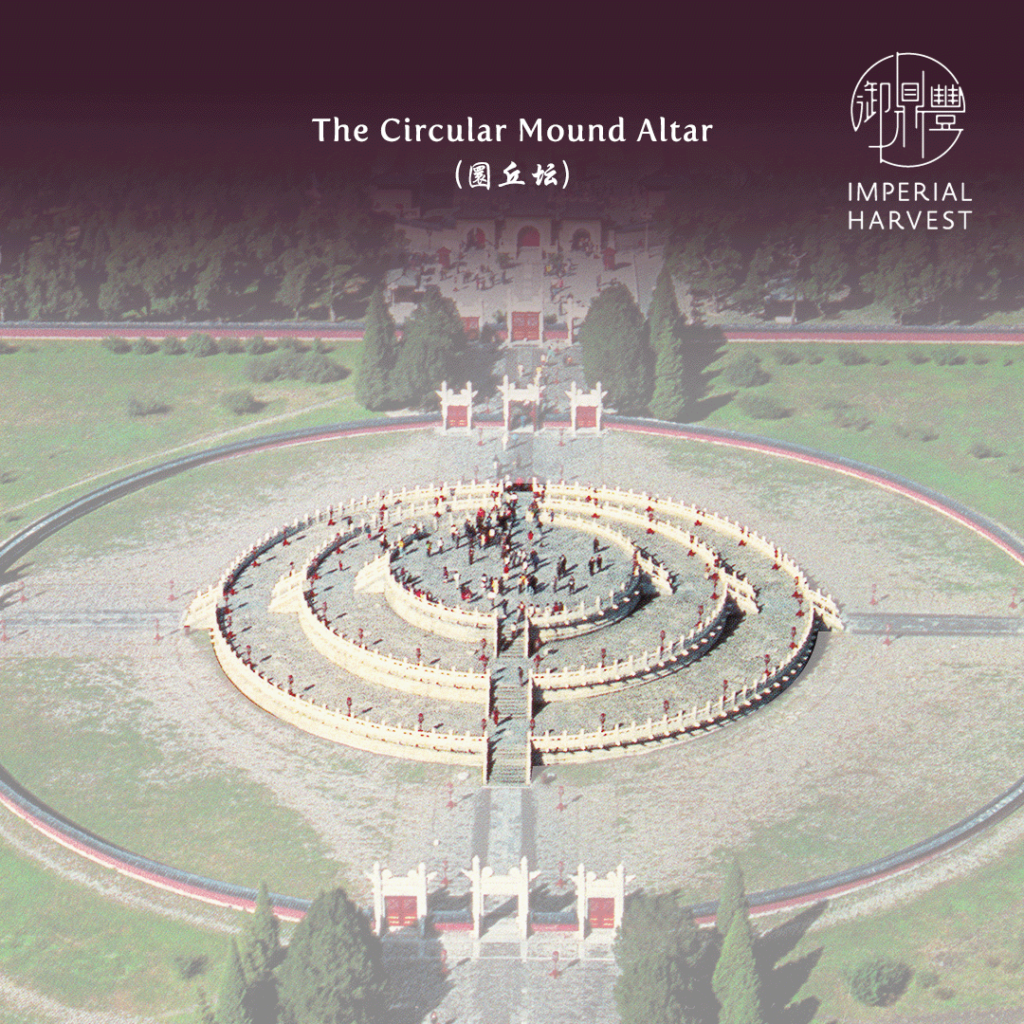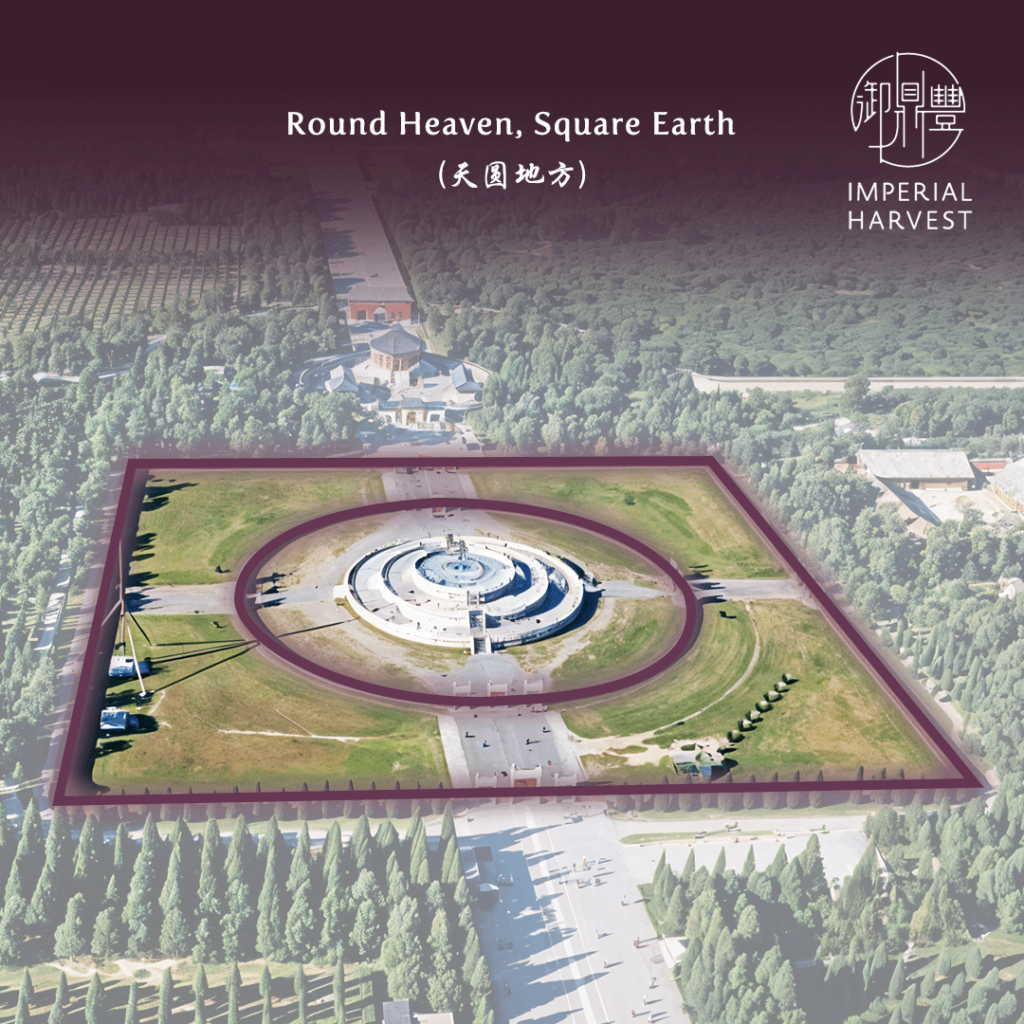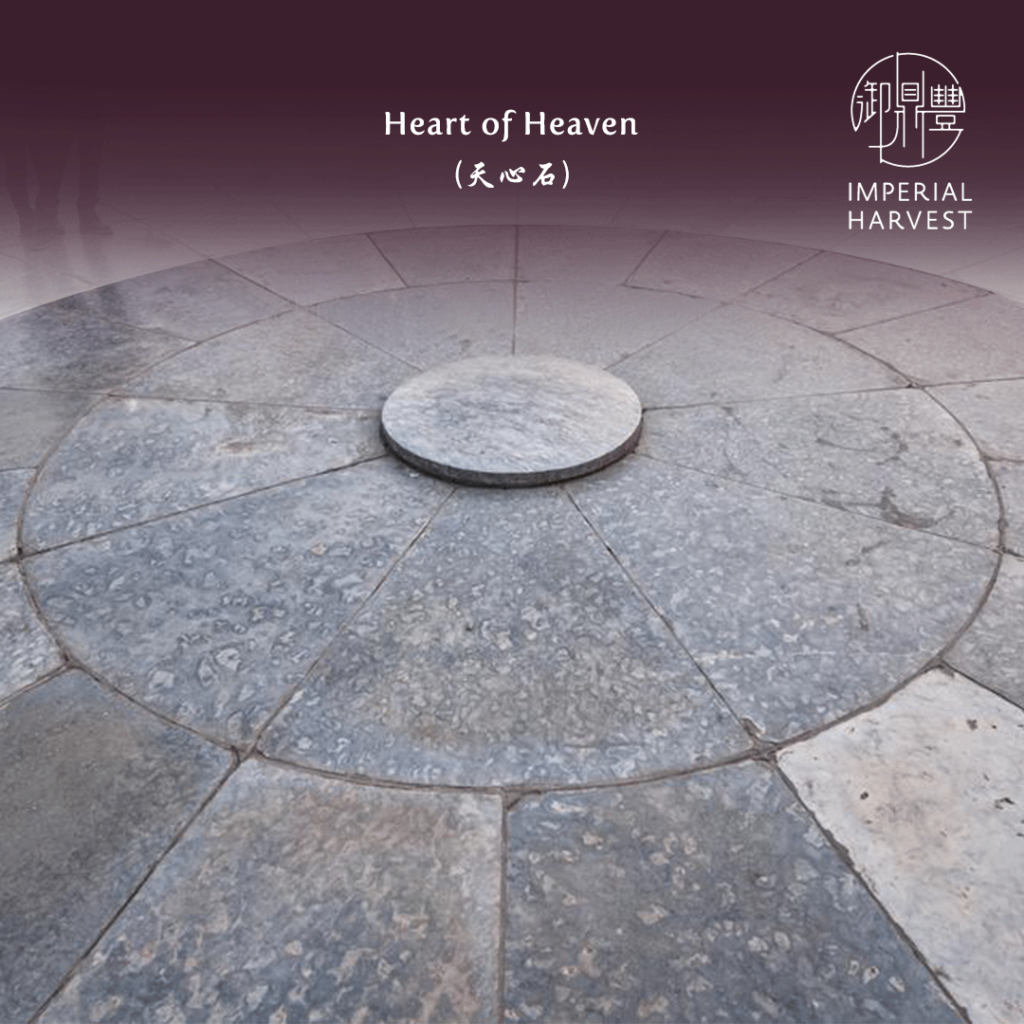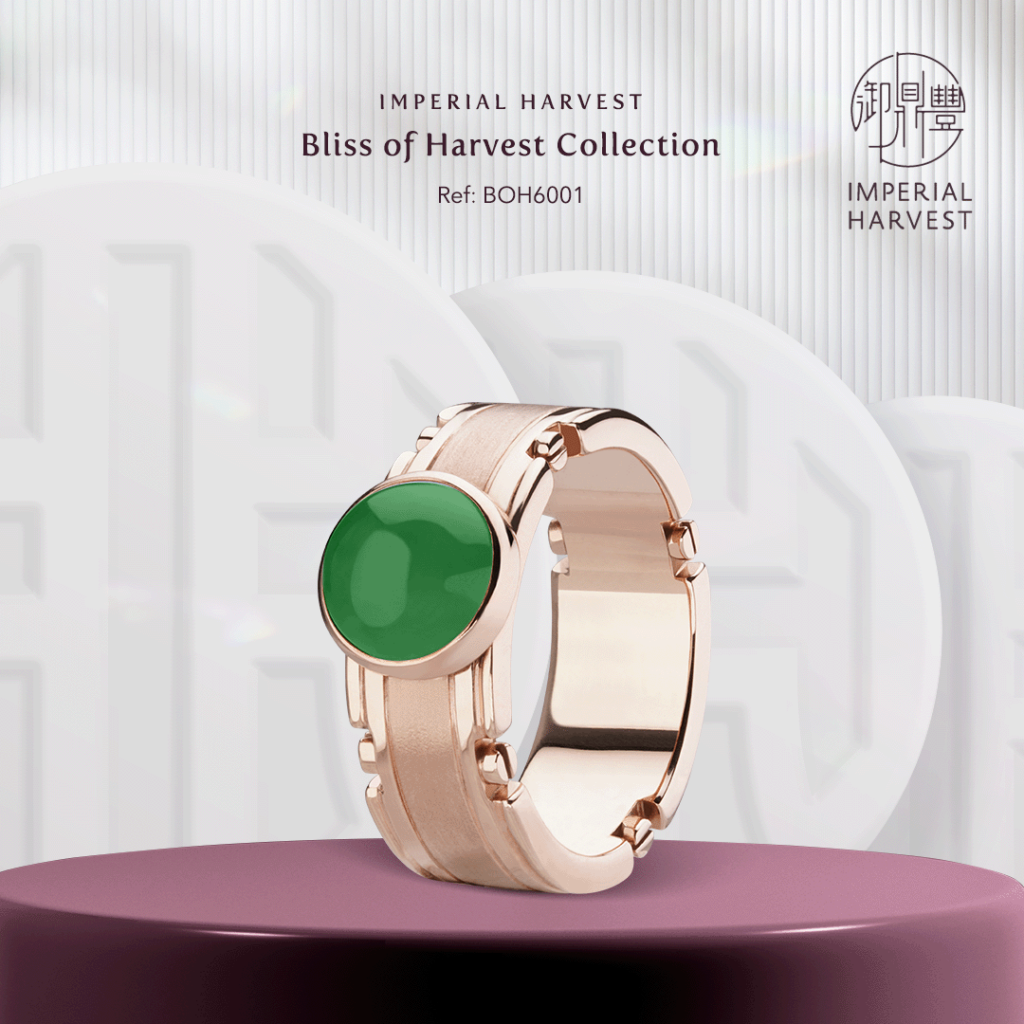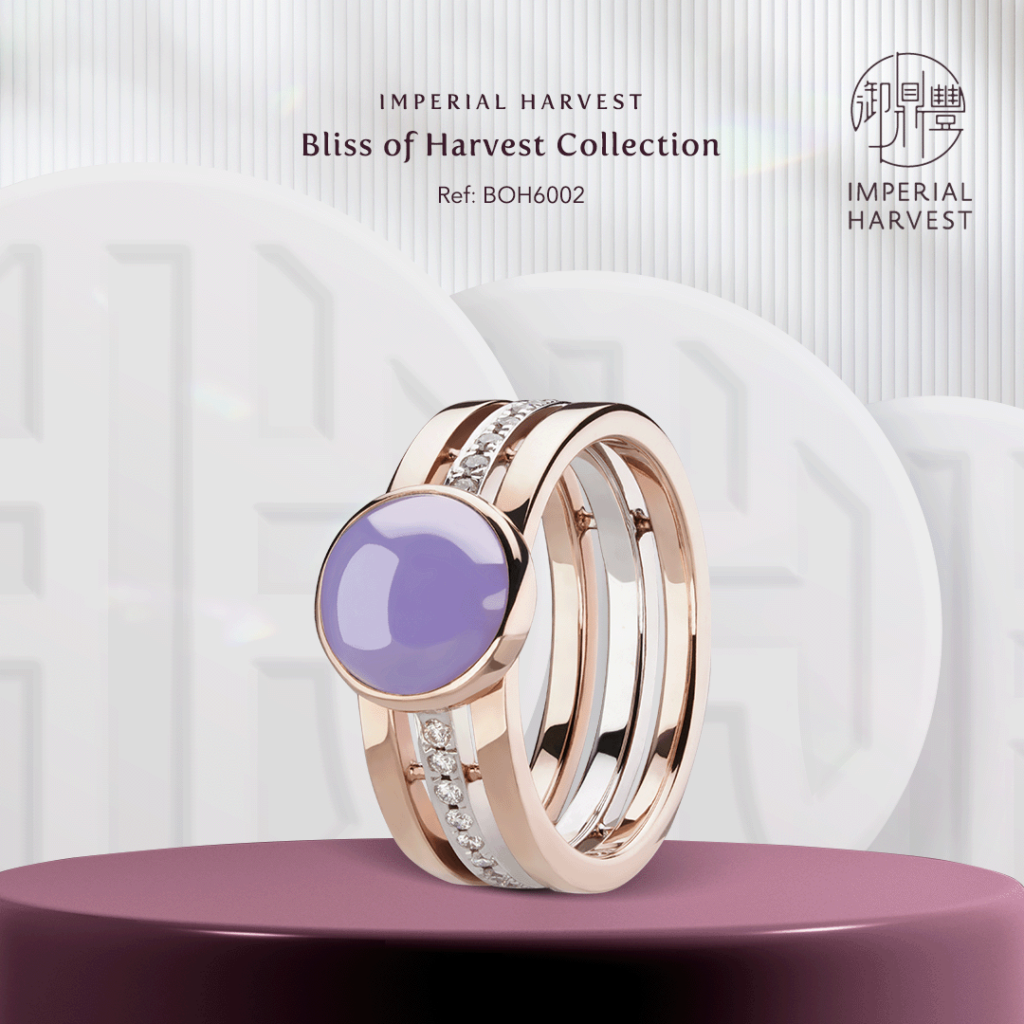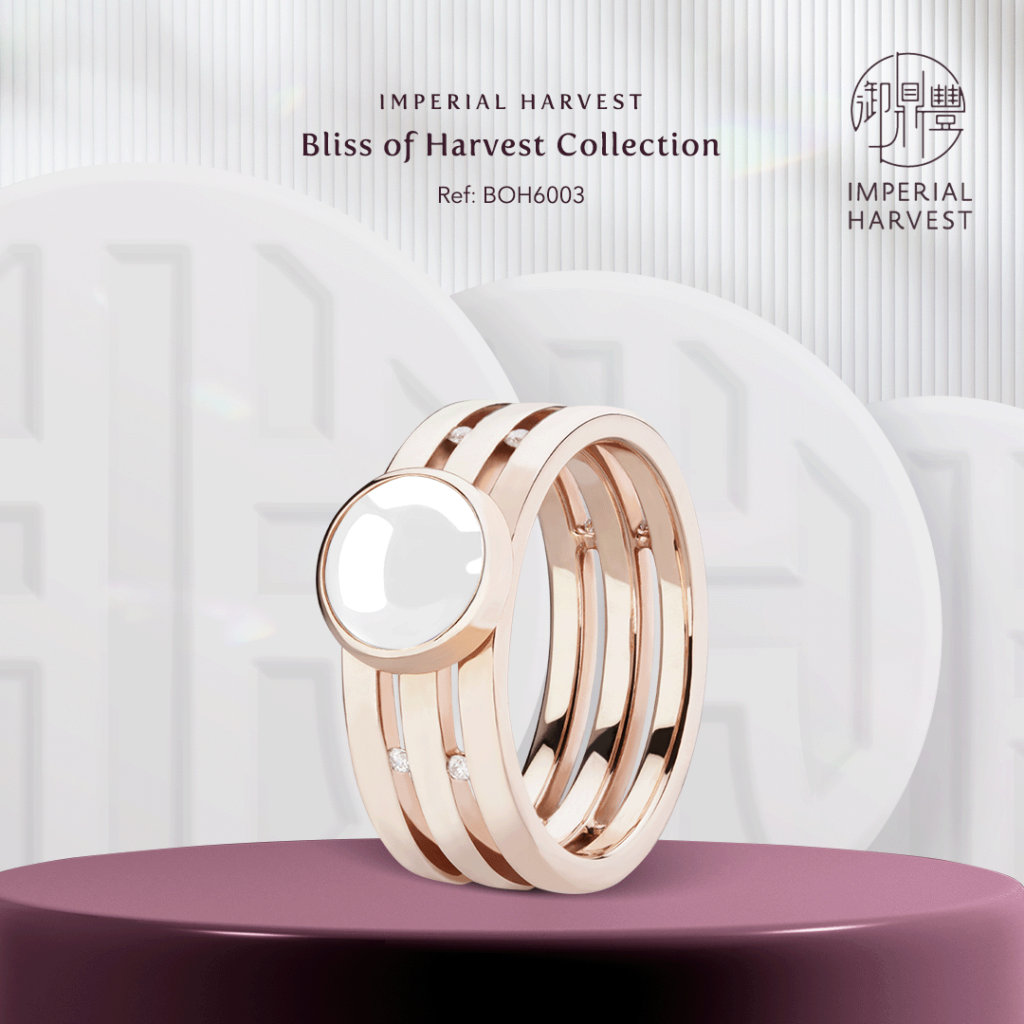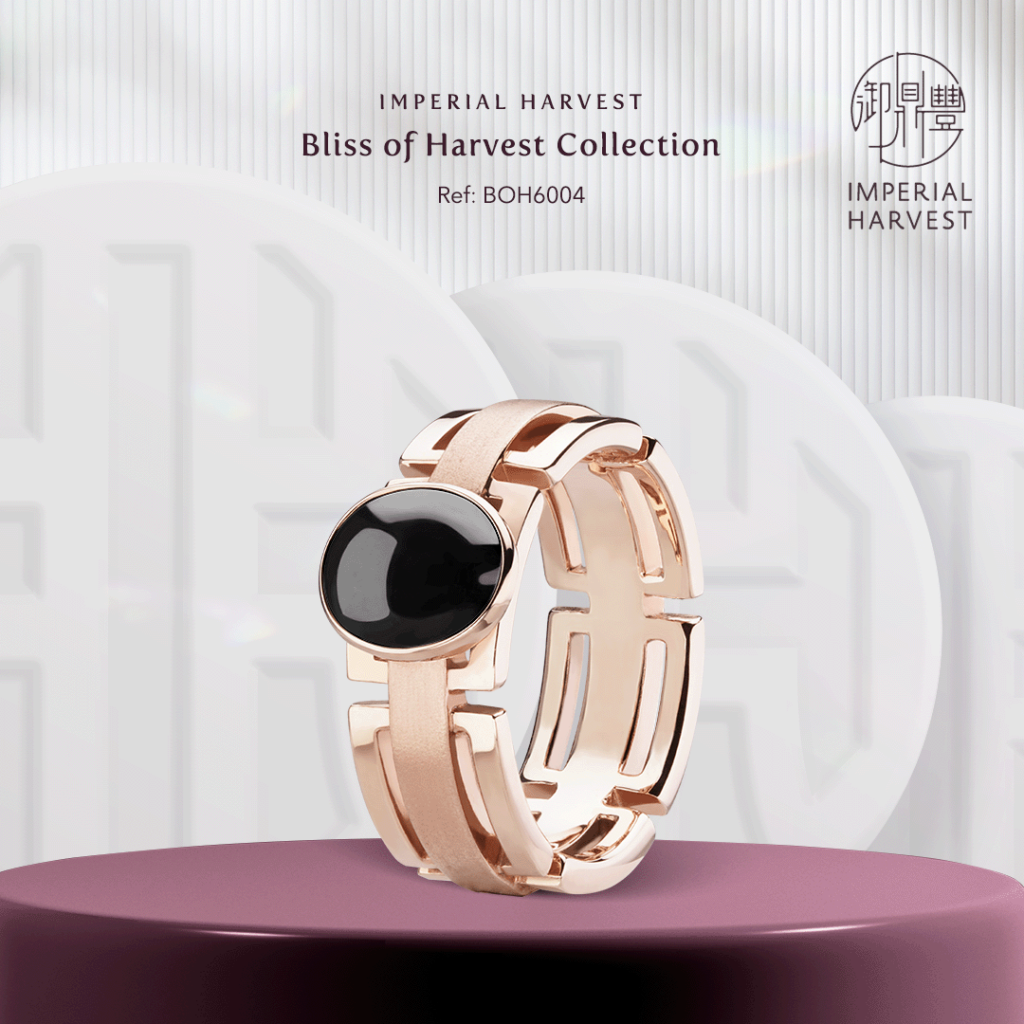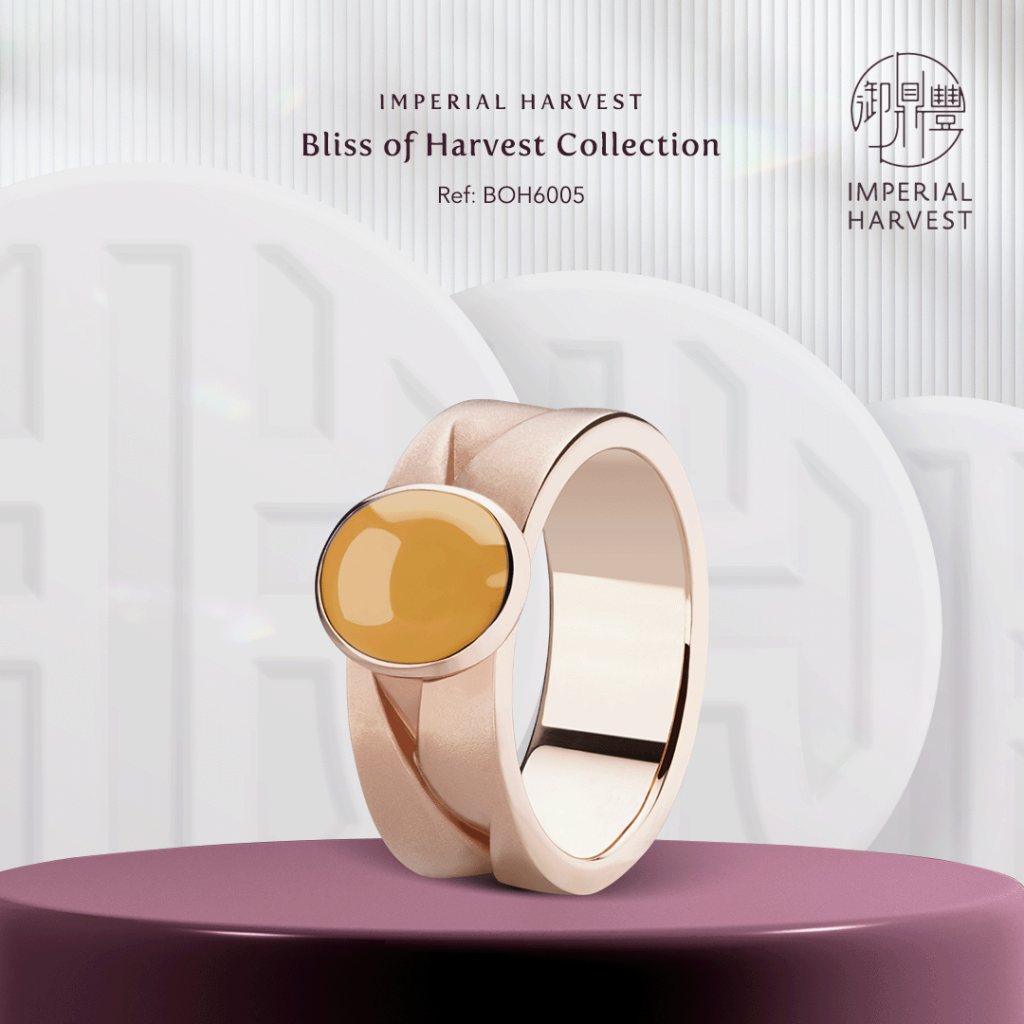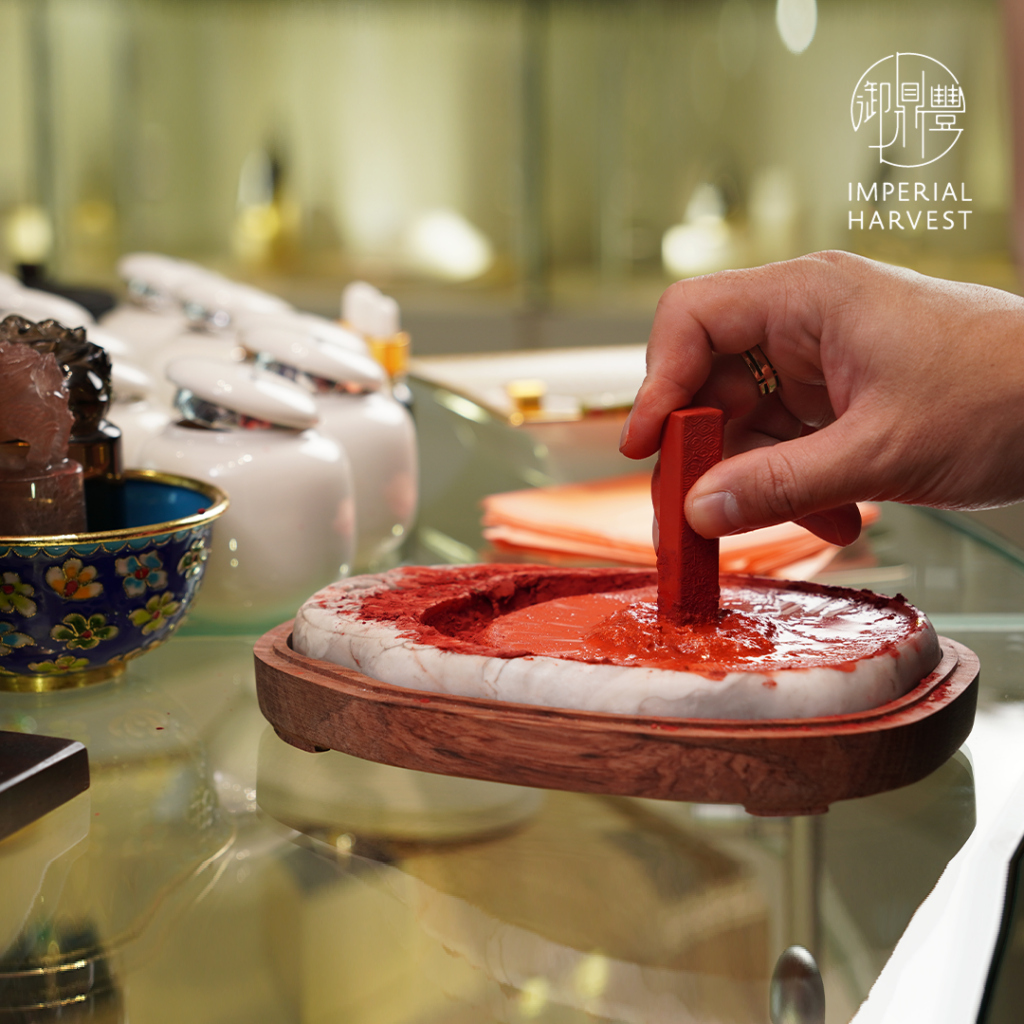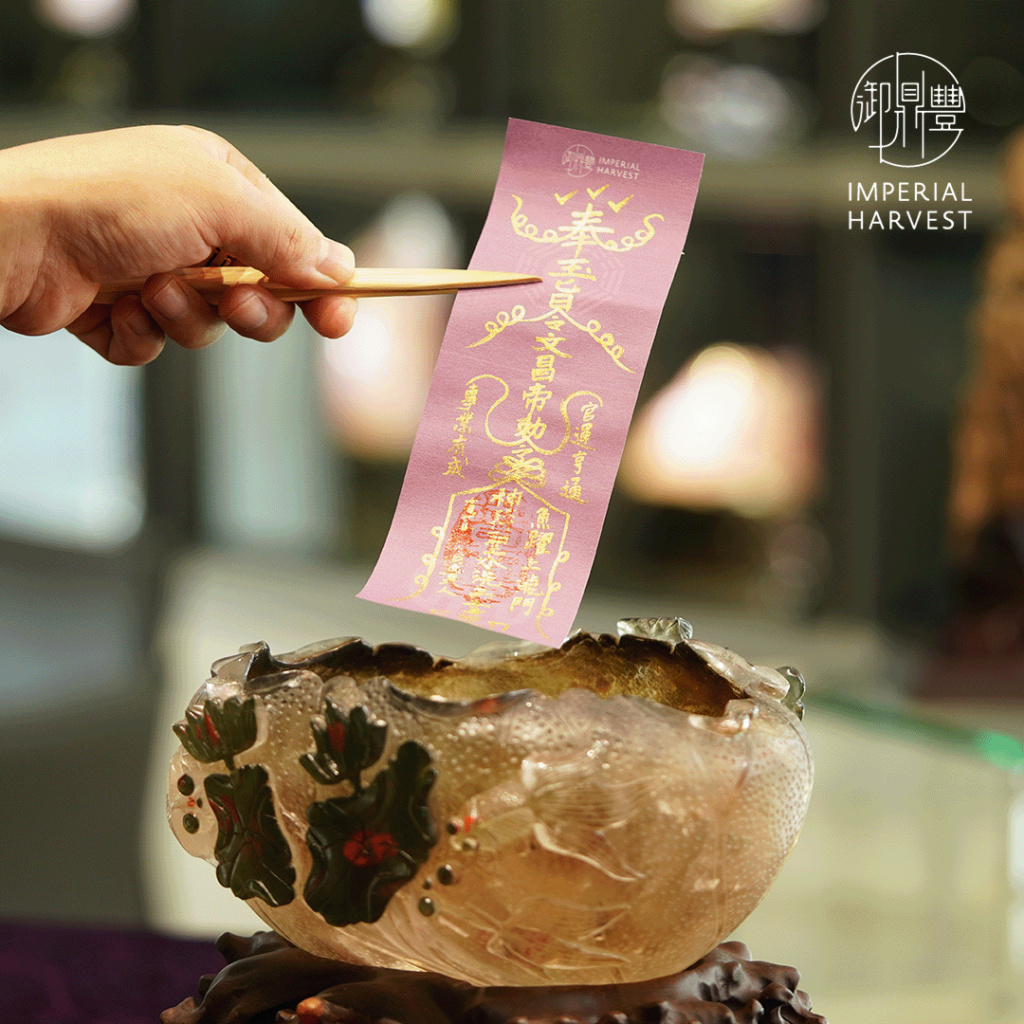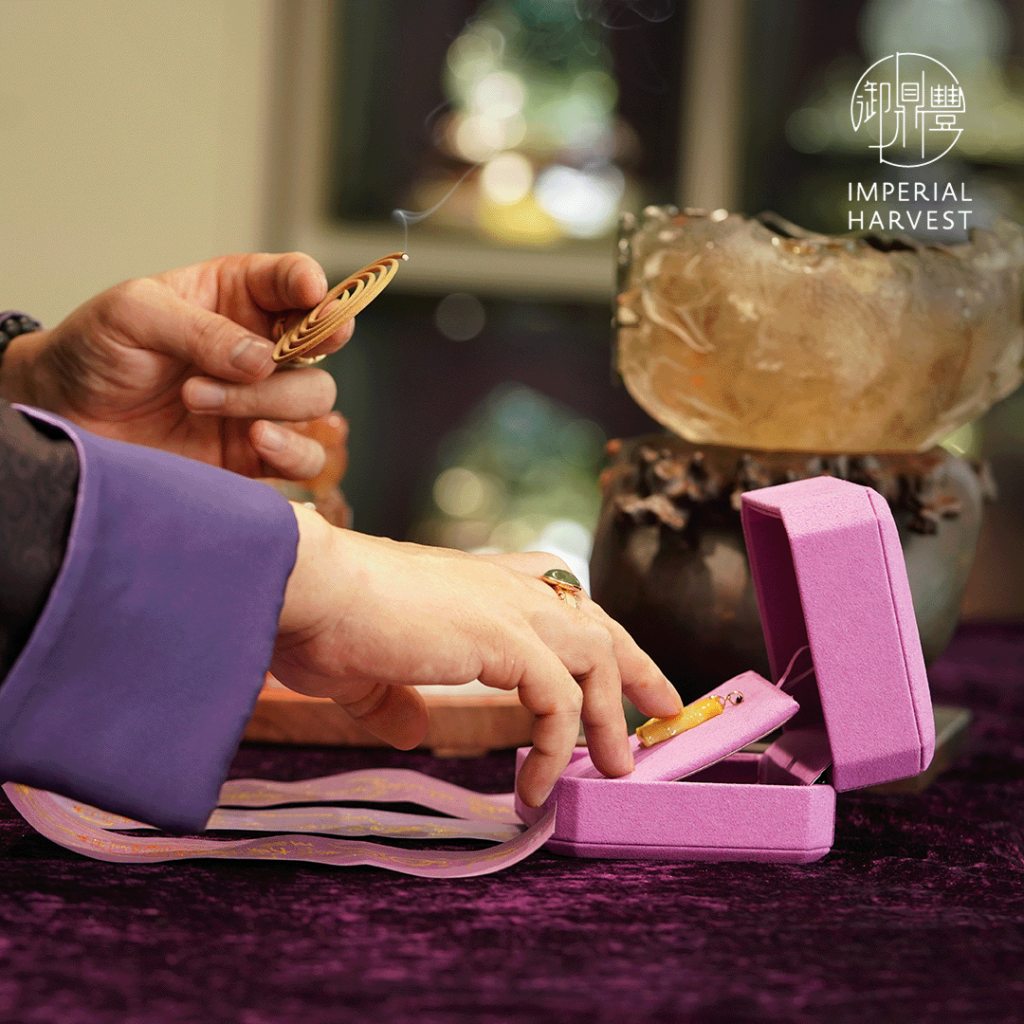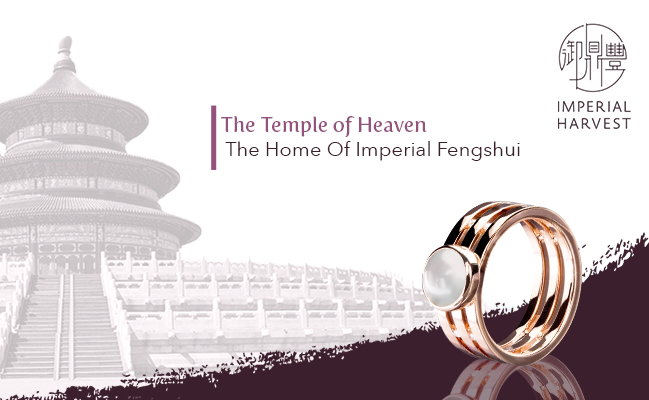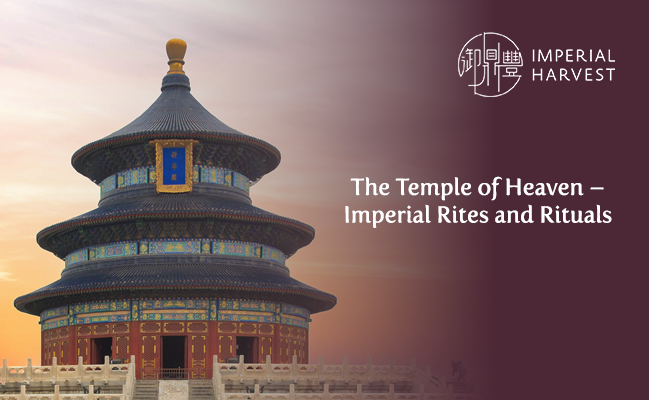Posted by Imperial Harvest on 06 December 2024
Estimated Reading Time: 4 mins
The Temple of Heaven, a UNESCO World Heritage site and one of China’s most iconic landmarks, draws millions of visitors annually with its stunning architecture and rich historical significance.
Once the ceremonial hub for Chinese emperors, known as Sons of Heaven, this site hosted rituals to secure abundant harvests and maintain balance in the empire. Its majestic design embodies profound philosophical concepts, symbolising the harmony between Heaven and Earth—a fundamental tenet of Chinese culture. Larger than the Forbidden City, this sprawling complex is not only Beijing’s largest structure but also a historic focal point of Imperial Feng Shui.
The Sacred Altars of the Temple of Heaven
The Temple of Heaven, a masterpiece of Chinese architecture, features two iconic altars: the Circular Mound Altar and the Hall of Prayer for Good Harvests. Both structures reflect the cultural and spiritual traditions of the Ming and Qing dynasties, where emperors performed sacred rituals to ensure harmony and prosperity for their empire.
The Circular Mound Altar (圜丘坛)
The Circular Mound Altar was the site where emperors offered sacrifices to thank Heaven and seek blessings for their realm. Entering through the southern Zhaoheng Gate, visitors are greeted by a white marble road leading to this remarkable structure. To reach the altar, one must pass through two walls—the outer square wall representing Earth and the inner circular wall symbolising Heaven.
The structure’s three-tiered design symbolises the connection between Heaven, Earth, and humankind, and its construction features multiple layers of symbolism. Each level is surrounded by marble balustrades carved with dragon motifs, representing imperial authority. At the centre of the altar lies the Heart of Heaven (天心石), a slightly raised stone where the emperor would stand during rituals, amplifying his prayers toward Heaven.
The altar itself, standing five meters tall, is a marvel of Imperial Feng Shui and traditional design. Built on three concentric marble platforms, each tier is surrounded by dragon-carved balustrades. Following the Rites of Zhou (周禮), the design incorporates the number nine—a symbol of heavenly power and eternity—throughout its construction. The altar’s steps, balusters, and stone rings are all multiples of nine, reflecting this sacred numerical significance.
At its peak lies the Heart of Heaven, a smooth central stone slightly raised above the altar. During rituals, the Emperor would stand on this stone, and the circular construction of the altar amplified his prayers, symbolically carrying them to Heaven.
The Hall of Prayer for Good Harvests (祈年殿)
The Temple of Heaven’s most iconic structure is the Hall of Prayer for Good Harvests. This grand, three-tiered circular building features a harmonious design representing the cosmic trinity of Heaven, Earth, and Humanity. The concept of a round Heaven and square Earth is also reflected in its placement within a square yard.
Historically, this hall was where emperors prayed for abundant harvests during the winter solstice. Located north of the Circular Mound Altar, it is connected by the Vermilion Steps Bridge (丹陛桥), Beijing’s oldest stone bridge. Elevated four meters high and stretching 360 meters in length, this arched pathway formed the sacred road used exclusively by the Emperor.
The hall’s blue-tiled roof symbolises the heavens, a uniform colour introduced during Emperor Qian Long’s reign. Constructed without nails, the structure is supported by 28 towering pillars: four dragon pillars for the seasons, 12 middle pillars for the months, and 12 outer pillars for the traditional Chinese hours. These pillars uphold a breathtaking caisson ceiling adorned with a dragon-and-phoenix relief, symbolising the emperor and empress.
The roof, originally painted in blue, yellow, and green to represent Heaven, the Emperor, and the People, was later unified in a striking royal blue during Emperor Qian Long’s reign to symbolise the sky. This blend of symbolism and architecture emphasises the emperor’s role as the mediator between Heaven and Earth, resonating in jewellery designs inspired by the hall’s spiritual and architectural grandeur.
Together, these altars represent the timeless legacy of the Temple of Heaven, blending architectural mastery with the profound traditions of Imperial China.
Imperial Harvest Exclusive Collection: Bliss of Harvest
The architectural and symbolic elements of the Temple of Heaven have been beautifully reinterpreted in modern jewellery design, particularly in Imperial Harvest’s Bliss of Harvest collection.
In celebration of the 600th anniversary of Beijing’s renowned Temple of Heaven, the Bliss of Harvest ring collection continues to stand as a testament to Imperial Harvest’s unparalleled artistry and craftsmanship.
As one of our most iconic collections, the Bliss of Harvest ring draws timeless inspiration from the Hall of Prayer for Good Harvests. It embodies the enduring connection between Imperial Harvest and the rich traditions of Imperial Feng Shui, offering a perfect blend of heritage and masterful design.
BOH6001
The first ring in the Imperial Harvest Bliss of Harvest collection features a harmonious contrast of matte and polished finishes, reflecting the balanced duality of yin and yang—the fundamental connection between heaven and earth. Four evenly spaced screws are thoughtfully incorporated into the design, honouring the four inner pillars of the Hall of Prayer for Good Harvests. These elements symbolise balance and stability, serving as a lasting reminder of the essential support needed to achieve success and prosperity.
BOH6002
This ring from the Bliss of Harvest collection boasts a sophisticated diamond-studded inner band, symbolising a future brimming with hope and radiance. Its luminous design reflects the promise of success and achievement destined for its wearer. Four pillars encircling the band echo the configuration of the inner pillars of the Hall of Prayer for Good Harvests, signifying unwavering stability and support. This exquisite piece embodies prosperity and serves as a guiding symbol for a flourishing and successful journey.
BOH6003
Featuring a radiant hand-polished mirror finish, this Bliss of Harvest ring showcases three distinct bands adorned with eight brilliant-cut diamonds arranged in four pillar-like formations. These pillars are inspired by the structural supports of the Hall of Prayer for Good Harvests, representing stability and harmony. This masterfully crafted design pays tribute to the esteemed Hall and serves as an enduring symbol of prosperity and success, inspiring its wearer to achieve lasting accomplishments.
BOH6004
This Bliss of Harvest ring showcases a striking geometric design, drawing inspiration from the square yard of the Hall of Prayer for Good Harvests. Rooted in the proverb “Round Heaven and Square Earth” (天圆地方), the ring embodies the balance and unity of cosmic forces. The interplay of matte and polished finishes lends a modern elegance while symbolising the harmonious duality of yin and yang. This thoughtfully crafted design reflects balance and prosperity, connecting its wearer to the aligned energies of Heaven and Earth.
BOH6005
The concluding design in the Bliss of Harvest collection features a refined tri-band structure that harmoniously combines artistic abstraction with architectural strength. The tri-band motif represents unity and resilience, resulting in a striking piece that emanates understated power. Crafted to instil confidence, this ring symbolises strength and stability, guiding its wearer toward lasting prosperity and success.
Bespoke Blessing by Master David Goh
Every treasure offered by Imperial Harvest is more than a piece of craftsmanship—it is a thoughtfully designed vessel of blessings. Master David personally consecrates each item through bespoke rituals, meticulously tailored to the client’s Bazi chart and conducted on auspicious dates. These ceremonies include the hand-drawing of unique talismans, the recitation of auspicious prayers, and the anointing of each piece with specially prepared red vermilion.
Master David draws inspiration from the architectural and spiritual elements of the Temple of Heaven, integrating these into each piece. Blending traditional techniques with contemporary design elements, Master David honours the rich cultural heritage of the Qing dynasty, creating a collection that pays tribute to the historical significance of the Temple of Heaven but also brings its timeless elegance and spiritual resonance into the modern era. Each piece is an artistic fusion between East and West, connecting its wearer to a legacy of prosperity, power, and harmony.
Rooted in the wisdom of the Temple of Heaven’s legacy, these practices connect our clients to the auspicious energy and enduring harmony of Chinese traditions. Through these sacred rituals, Imperial Harvest empowers individuals with prosperity and balance, ensuring that the timeless blessings of these revered customs continue to enrich lives in meaningful and transformative ways.
A Lifelong Journey with Imperial Harvest
The Imperial Harvest Journey signifies a lasting partnership with Master David Goh and his dedicated team of experts. With a suite of complimentary services designed exclusively for Imperial Harvest clients—including annual Bazi analyses, home Feng Shui assessments, Qi Men Dun Jia consultations, and Yi Jing divination—Imperial Harvest is committed to supporting clients in achieving lifelong success and prosperity.
Discover the unparalleled fusion of luxury, tradition, and personal empowerment with the Imperial Harvest Bliss of Harvest collection. Schedule your complimentary Bazi consultation today and uncover how this extraordinary treasure can elevate your financial opportunities, business achievements, and personal relationships.
Imperial Harvest’s expert consultants are always on hand to guide you on your journey and provide you with insights to help you realise your fullest potential. Book a complimentary consultation today or contact us at +65 92301640.
We are located at
For prospective clients: Imperial Harvest402 Orchard Road
Delfi Orchard #02-07/08
Singapore 238876 For existing clients: Imperial Harvest Prestige
402 Orchard Road
Delfi Orchard #03-24/25
Singapore 238876
Most Read Articles
Get to read our life changing articles and get inspired.
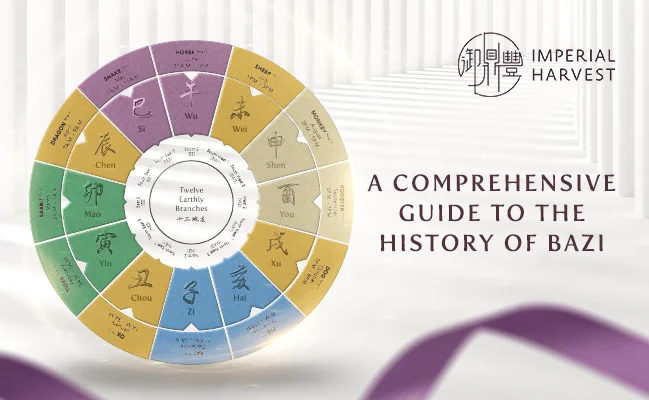
A Comprehensive Guide to the History of Bazi (八字)
Estimated Reading Time: 5 mins Bazi (八字) is often mistakenly assumed as the Chinese counterpart of western Astrology. The similarities between both systems lie in their utilisation of birth dates and time in their calculations, and the ability to be read from a tabulated chart. Where Astrology may take into account the positions of different […]
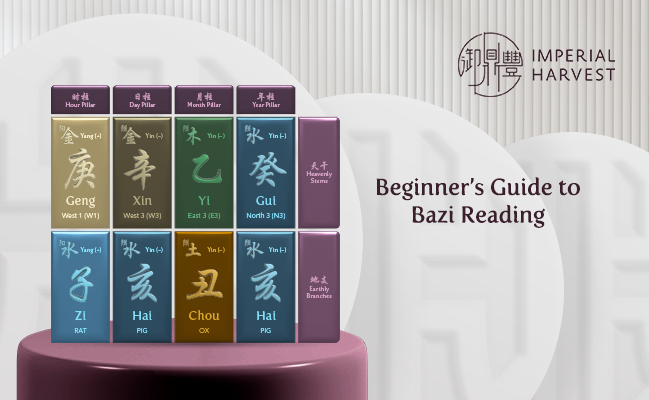
Beginner’s Guide to Bazi Reading
Estimated Reading Time: 5 mins Bazi (八字), or the Four Pillars of Destiny, is a multidisciplinary study in Imperial Feng Shui. It encompasses a well-developed set of metaphysical principles based on planetary influences, the duality of Yin and Yang, and the Five Elements. What is a Bazi Reading? Bazi is an intricate discipline within Imperial […]
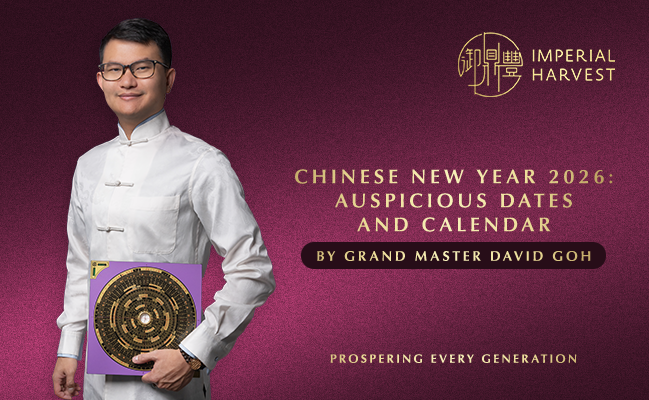
Chinese New Year 2026: Auspicious Dates and Calendar
Imperial Feng Shui Date Selection by Grand Master David Goh In Chinese metaphysics, success is not determined by effort alone — timing is equally decisive. 2026 marks the Year of the Crimson Horse, a year characterised by strong Fire energy, speed, visibility, and decisive movement. It is a year that rewards bold action and leadership, […]
